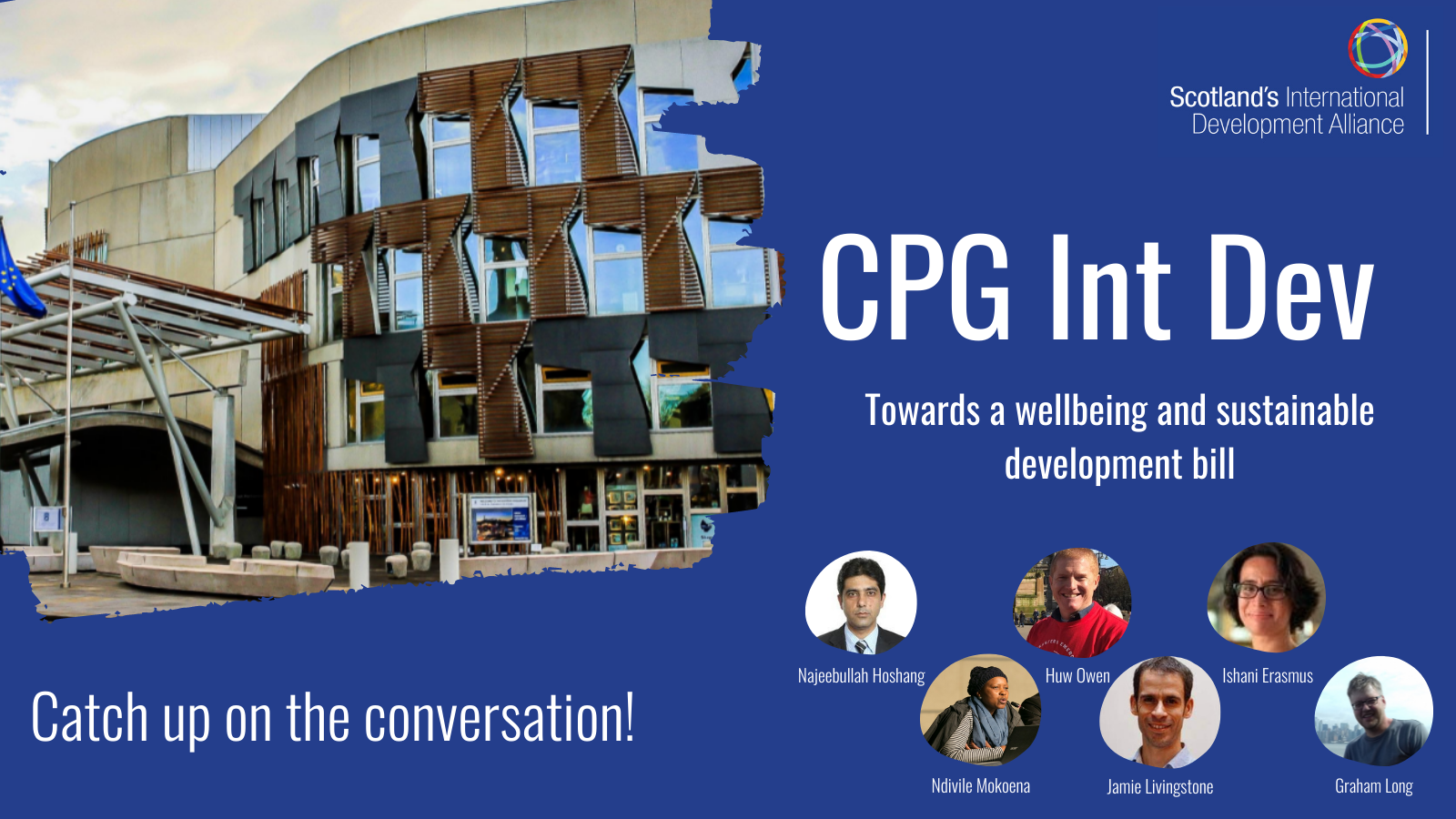On the 16th March 2022, the Cross Party Group for International Development met to explore what a future Wellbeing and Sustainable Development (Scotland) Act might look like, what it would hope to achieve and why it should be ambitious in its aims, in recognition that our current systems are not meeting the needs of people nor the planet.
We were joined by a range of speakers including Ndivile Mokoena (Project Coordinator at Gender CC Southern Africa, based in South Africa) and Jamie Livingstone (Head of Oxfam Scotland) who kicked the meeting off explaining why we can’t act on sustainable development and wellbeing in Scotland without connecting the dots between local and global.
They explained that improving societal wellbeing at home must not be done in isolation nor overshadow the need to reduce the grave inequalities facing many accross the world. They noted that our global impact is complex and much of the bigger systemic issues at the heart of global issues – inequality, poverty, the nature emergency and the climate crisis – are impacted, positively and negatively, by a host of domestic public policy decisions across government. Whether that’s about the way we trade, what we buy through public procurement, or require of those securing public contracts, to how we use our tax powers, and where or how much emphasis we put on global citizenship – in schools and beyond.
After these introductory remarks, Dr Graham Long (Senior Lecturer in Politics at Newcastle University) and Ishani Erasmus (practitioner and advocate of sustainable development) presented details of their recent research carried out on behalf of the Alliance. They took the CPG through their 16 draft recommendations for this future bill.
They explained it could help narrow the distance between stated ambitions of global solidarity and delivery. They also demonstrated that it could strengthen and support other pieces of legislation – including the Community Empowerment Act and the Climate Change Act, while supporting delivery of the promised Circular Economy Bill.
Critically, they also explained that by enshrining clear, accurate and simple global definitions of concepts like ‘wellbeing’ and ‘sustainable development’ into legislation, the bill can ensure that every public agency, consciously – by law – takes the consequences of their policy decisions here and globally, now and in the future, both fully and transparently into account.

